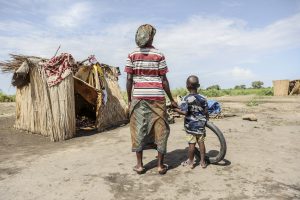Philippines
Advocacy
In September, the SG released his seventh report (S/2024/626) on the situation of CAAC in the Philippines, covering the period from January 1, 2022, to December 31, 2023. During this period, the Country Task Force on Monitoring and Reporting (CTFMR) verified 58 grave violations against 43 children (33 boys, 10 girls), representing a decrease of 49 percent compared to the previous reporting period. Non-State armed groups were responsible for 84 percent of verified violations, with the New People’s Army (NPA) accounting for the highest number (24 violations). Recruitment and use (22), killing and maiming (25), and attacks on schools and hospitals (7) were the most verified violations. The Armed Forces of the Philippines were responsible for 12 percent of the violations, primarily related to killing, maiming, and attacks on schools. Additionally, the CTFMR verified the detention of six children for alleged association with armed groups, as well as one incident of the denial of humanitarian access. The Working Group should:
- Strongly condemn all ongoing grave violations, demand that all parties uphold their obligations under IHL and IHRL, and call for all perpetrators of grave violations to be held accountable;
- Welcome and encourage the Government to continue efforts to implement the Special Protection of Children in Situations of Armed Conflict Act (Republic Act No. 11188) and Children in Situations of Armed Conflict Handling Protocol, including with regard to the treatment of children affected by the armed conflict primarily as victims and ensuring their swift handover to civilian child protection authorities; and call for the establishment of and funding for reintegration programs;
- Urge all parties to immediately end attacks against schools, hospitals, and protected personnel, including schools in indigenous communities; further call on the Government to take concrete measures to avoid military use of schools and cease all threats against education personnel, pursuant to SCR 2601 (2021), to ensure accountability and redress for attacks on education, and to endorse and implement the Safe Schools Declaration;
- Call on the Government to extend and continue to implement the strategic plan with the Armed Forces of the Philippines, and respect and protect humanitarian personnel, assets, and infrastructure;
- Call for the protection, rights, well-being, and empowerment of children to be fully incorporated and prioritized in ongoing and future peacebuilding and mediation efforts, notably by the National Democratic Front of the Philippines, and encourage and facilitate consideration of children’s views in these processes where possible and compatible with their best interests, pursuant to SCR 2427 (2018).
This information is based on Watchlist’s Children and Armed Conflict Monthly Update: November 2024.
UN Action
Year listed: 2003
Action Plans signed: No
Previous Action Plans: MILF – recruitment and use of children (July 2009) *Delisted in 2017 following compliance with Action Plan.
Sanctions Committee: No
Secretary-General’s reports on CAAC in Philippines: 2020; 2017; 2013; 2010; 2008
Security Council Working Group conclusions on Philippines: 2020; 2017; 2014; 2010; 2008
Perpetrators listed in the annexes of the Secretary-General’s annual reports on children and armed conflict
| 2001 | 2002 | 2003 | 2005 | 2006 | 2007 | 2009 | 2010 | 2011 | 2012 | 2013 | 2014 | 2015 | 2016 | 2017 | |
|---|---|---|---|---|---|---|---|---|---|---|---|---|---|---|---|
| New People’s Army (NPA)* | a | a | a | a | a | a | a | a | a | a | a | a | a | a | |
| Moro Islamic Liberation Front (MILF)~* | a | a | a | a, b | a | a | a | a | a | a | a | a | a | ||
| Moro National Liberation Front (MNLF) | a | ||||||||||||||
| Abu Sayyaf Group (ASG)* | a | a | a | a | a | a | a | a | a | a | a | a | a | a | |
| Bangsamoro Islamic Freedom Fighters (BIFF) | a | a | a | a |
a: Parties that recruit and use children
b: Parties that kill and maim children
c: Parties that commit rape and other forms of sexual violence against children
d: Parties that engage in attacks on schools and/or hospitals
e: Parties that engage in abduction of children
f: Parties that deny humanitarian access to children
~ This party has concluded an action plan with the United Nations in line with Security Council resolutions 1539 (2004) and 1612 (2005).
* This party has been in the annexes for at least five years and is therefore considered a persistent perpetrator.




